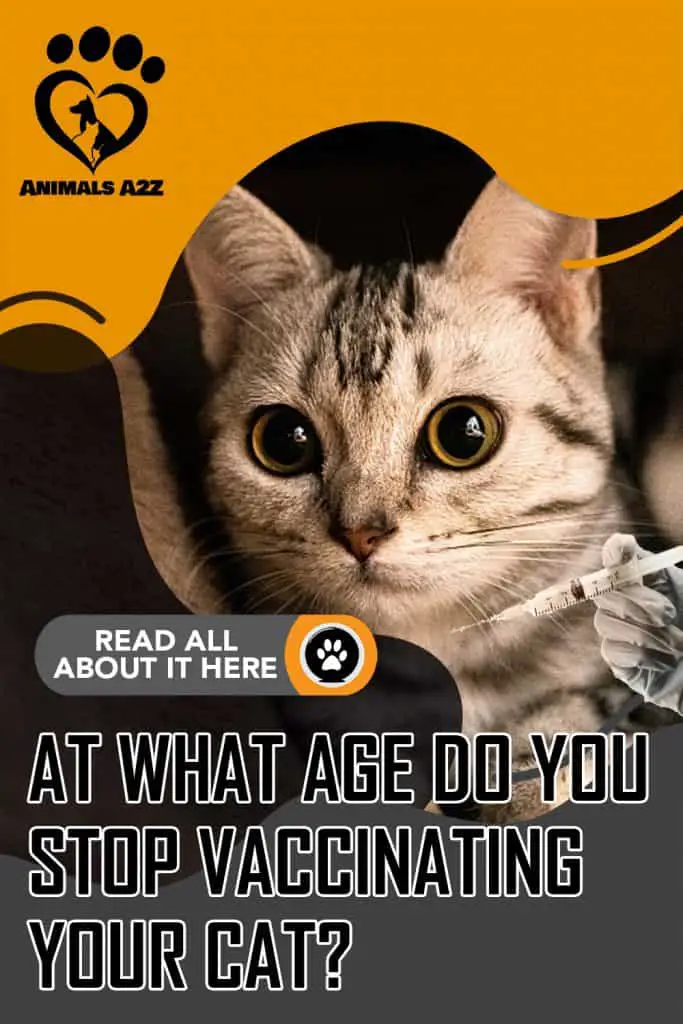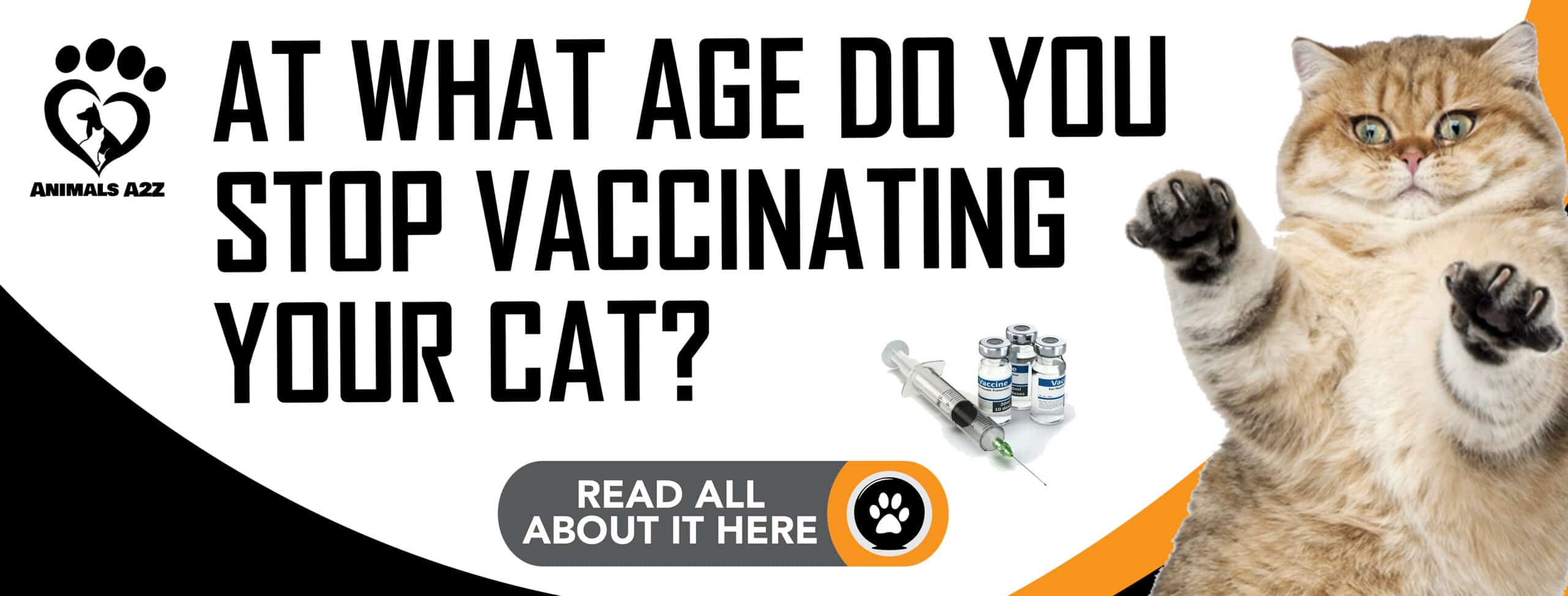Contrary to the old wives’ tale, cats don’t actually have nine lives. Like us, they only have one shot in this thing called life. This is why getting your cat up to date with their vaccines is one of the most important things you’ll do for your feline companion as a cat guardian.
So when is it time to stop vaccinating? Well this depends completely on your cats living conditions and your vets recommendations. Keep reading to learn more.
How early and how often your cat should be vaccinated should be up to the recommendations of your veterinarian. This often depends on how old your cat is, how healthy they are and what their cat lifestyle is.
Table of Contents
Should your senior cat be vaccinated?
As your cat moves to their golden years, you might be thinking whether or not they should or even need to be vaccinated. Wouldn’t they have developed immunity from all of the vaccines they’ve been subjected to all this time? Vaccines have side-effects, won’t those be more prominent in senior cats?
Unfortunately, as of now, we still don’t have solid answers to these questions. What is known is that, the more cats are vaccinated, in the long run, they could develop what is called the feline vaccine-associated sarcoma. It’s a form of cancer that could develop in the area of their bodies where they are vaccinated.
On the flip side of the coin, there are some research showing that senior cats’ immune systems are significantly weaker than their younger counterparts. This makes our older kitties more susceptible to more diseases — which makes the argument for senior cat vaccination so compelling. Most vets will actually still push for annual vaccination in senior cats.
When your cat turns 8 years old, open the conversation with your veterinarian on how often Mr. Fluffy Pants should be vaccinated — especially if your old boy has access to the outdoors.
What are the vaccines that all cats should get?
There are 4 vaccines that all cats should get. These are the vaccines to protect them against rabies, panleukopenia (feline distemper), feline calicivirus, feline viral rhinotracheitis.
In addition to the four mentioned above, your cat may also need vaccines against Chlamydia, Feline Leukemia, and Bordetella. These vaccines are especially important if your cat regularly goes outside or goes to places with other cats like groomers or kennels. It should be noted that the Bordetella vaccine will not prevent your cat from getting the disease, but will help your cat to not be too sick from it if they do get it.
Do indoor only cats still need vaccines?
Don’t think that just because your cat is an indoor cat only that they are protected from all the diseases outside your safe, happy home. No matter how laidback your senior cat is, there is still a chance that they would tap in to their inner escape artists and run for the hills just when you least expect them to.
Just keep in mind that while vaccines greatly help to keep your cat healthy and happy, it doesn’t mean your vaccinated cat has total immunity from diseases. As much as possible, keep your cat away from infected animals and keep them at home as best as you can.
Common questions about senior cat health
How do I keep my senior cat healthy?
When a cat turns 11, they’ll be officially considered as a senior citizen in the cat world. When they reach 15 years or older, that makes them super-senior cats.
There’s a lot more things as a cat guardian that you should keep an eye on to ensure your old companion gets to stay with you for a bit longer:
- Grooming. Trim their nails weekly and groom them a bit more frequently.
- Get their teeth and mouths checked.
- Have more frequent check-ups.
Is my cat sick or just old?
As your cat ages, there are bound to be changes in their behavior. However, this doesn’t mean that when your cat drastically changes their behavior, it’s jut because they’re old and there’s nothing to worry about.
Remember, cats are incredibly good at hiding pain. The best way to make sure that your cat is completely healthy is to do regular checkups with your vet. As they get older, they will need to be looked at more often.
Is it worth it to adopt a senior cat?
If you’re in the market to open your home to a new furry member of the family, please consider adopting a senior cat from your local shelter.
While yes, they will need more care because they’ll naturally be weaker than younger cats, they are also much calmer and much more well adjusted to being in a family life — perfect for first time cat owners.
Conclusion
There is still no definitive answer to when a cat should stop getting vaccines or if they should stop getting vaccines at a certain age. The best way to about this is to really have frequent checkups with your veterinarian so they can help you decide what’s best for your cat.


